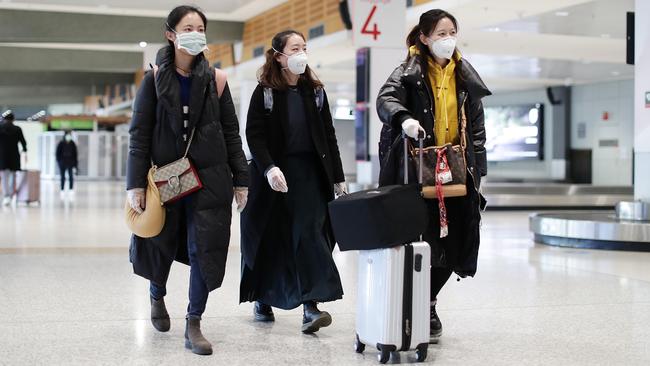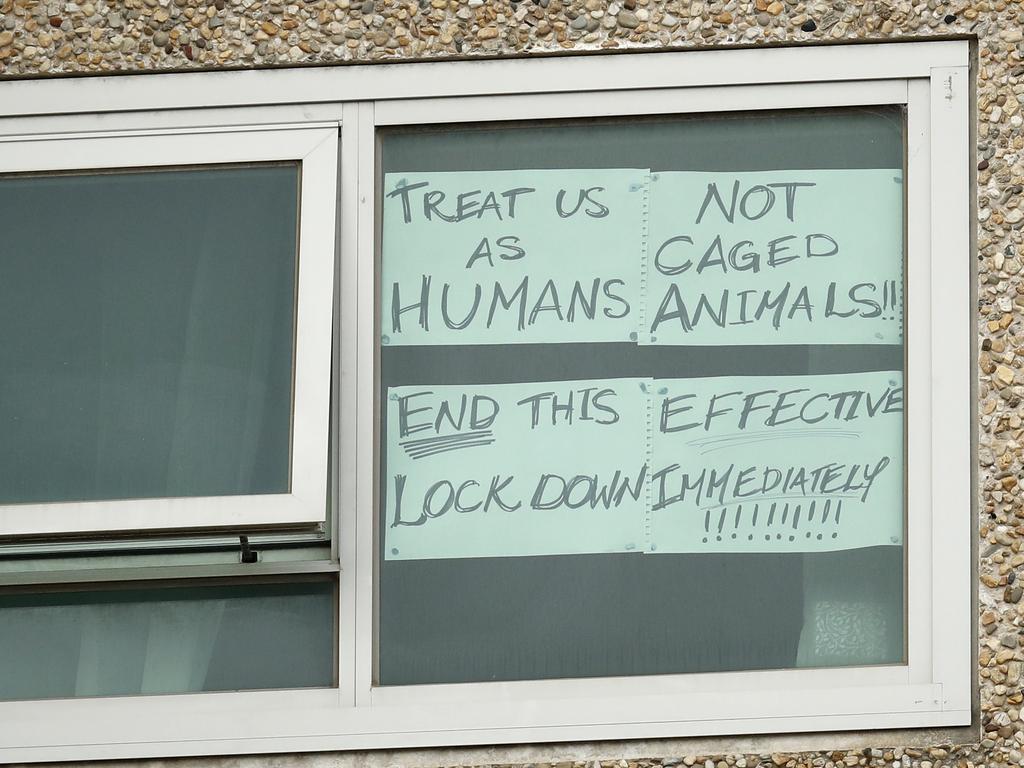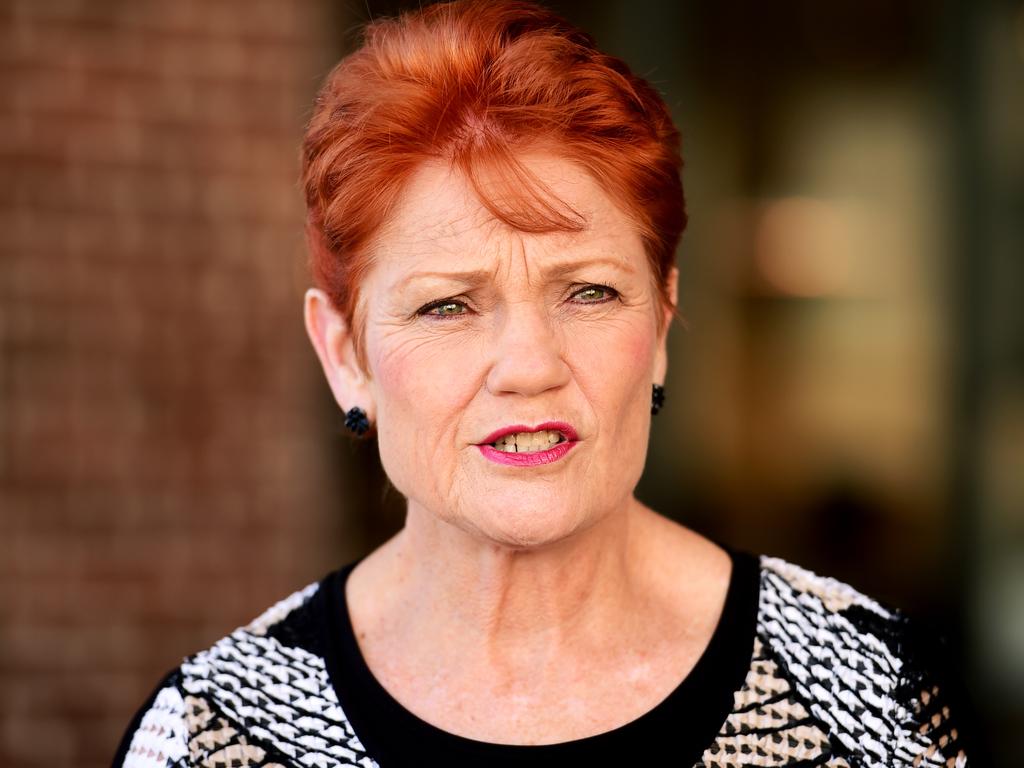Coronavirus Victoria: the isolation state as troops are sent in
Scott Morrison pledges to send in more military resources to help stop the virus in Victoria ahead of tonight’s NSW border closure.

The border between the powerhouse states of NSW and Victoria will be shut indefinitely for the first time in more than a century to isolate Melbourne’s COVID-19 outbreak, as Scott Morrison pledged to send in troops and personnel to help stop the virus spreading.
With 1000 Australian Defence Force and Australian Public Service personnel working with Victorian authorities to combat Australia’s worst community transmission outbreak, the Prime Minister said his government was ready to increase its commitment.
The drastic step by NSW Premier Gladys Berejiklian to shut the southern border from midnight on Tuesday, following discussions with Victorian Premier Daniel Andrews and Mr Morrison, will significantly affect border towns and restrict movement of trucks, planes and trains between the nation’s two most populous states.
Victoria recorded 127 new cases on Monday, the state’s worst daily number, outstripping the previous peak of 111 on March 28. The number of cases of unknown origin in Victoria hit 145 in the past week.
One man in his 90s died of COVID-19 in a Victorian hospital on Sunday and another man in his 60s died on Monday morning, lifting the state’s death toll to 22.
Mr Morrison on Monday conceded the travel ban — the first closure of the NSW-Victoria border since the Spanish flu in 1919 — had the potential to threaten jobs and the economy but stressed it was necessary to avoid the outbreak spreading outside Victoria.
Late on Monday, NSW Health said two suspected COVID-19 cases had been detected in the NSW border town of Albury. NSW Health said close contacts of the two people, who returned positive coronavirus results following preliminary tests, had been moved into quarantine. One had recently travelled to Melbourne.
The shutdown sparked widespread alarm about the economic harm posed by a “stop-start recovery”, with Business Council of Australia chief executive Jennifer Westacott warning Australia could not “afford to continuously go from one extreme to the other”.
The Australian understands the new travel ban was driven by concerns in South Australia and Queensland about the movement of Victorians into NSW, triggering further delays on the removal of border restrictions.
The Queensland and West Australian borders, which were shut in March, remain closed to interstate visitors despite federal health advice that travel bans were not required. Plans to establish a travel bubble with New Zealand are also understood to be on hold until the Victorian outbreak is contained.
Mr Morrison described the outbreak as “serious” and said he was ready to deploy more troops, Australian Federal Police officers and commonwealth public servants to help contain the virus after Victorian COVID-19 infections surged to 2660.
Mr Morrison said he hoped the travel restrictions would not be needed for the long term.
“It obviously has an economic impact. And people’s jobs are at risk by this. But they’re equally at risk if the outbreak goes further,” he said.
“We knew there would be outbreaks. This one is getting above where we would like it to be. It is serious. Every resource and focus is being brought to bear to deal with it.”
At the height of the pandemic, air travel between Melbourne and Sydney remained the busiest route in Australia, with 17,100 passengers travelling between the capital cities in April, a 97.7 per cent decrease compared with the same period last year.
Federal tourism figures reveal the domestic spend by Victorian and NSW visitors in each state was worth almost $8bn last year. In 2019, Victorian visitors to NSW spent $4bn, while NSW visitors to Victoria spent more than $3.9bn.
Ms Berejiklian said the border closure would remain in place for as long as health officials deemed it necessary. From midnight on Tuesday, the NSW Police Force – assisted by up to 500 ADF personnel – will begin an intensive operation to monitor 55 border crossings from Victoria.
Ms Berejiklian, who last week argued all states and territories should reopen their borders, said she hoped the travel ban would be a “temporary arrangement”.
NSW Police Commissioner Mick Fuller said new fines and penalties would be sought for people attempting to cross the border with NSW, or for those who provided false information about their need to travel.
“Someone could choose to swim across the river, walk through the bush, there are dirt tracks. We’ll be using drones and other aerial surveillance at the same time,” he said.
Ms Berejiklian said essential workers and others who required exemptions would be able to apply through the Service NSW website.
Mr Andrews said the border closure was “simply a precautionary principle being applied”. “No one enjoys doing it but it is, I think, the right step to take at this point,” he said. “That won’t be a feature that goes on any longer than it needs to, and I’m grateful it will be enforced on the NSW side of the border, so that it’s not a resource burden for us.”
Ahead of the national cabinet meeting on Friday, NSW, SA, Tasmania, Queensland and WA have provided support to the Victorian government, assisting with contract tracing and testing.
The Victorian government has asked the Morrison government for extra ADF strategic planning and logistic support in addition to the 195 military personnel assisting state authorities. Of the new infections, 53 cases were linked to the locked-down housing commission towers.
A federal Department of Health spokesman said the department was “helping co-ordinate 200 clinical staff” in Melbourne to free up other clinical staff for door-to-door testing.
Josh Frydenberg said Australia’s economic recovery depended on “Victoria’s success and stemming the tide of these new cases and getting it under control”.
Ms Westacott warned the cost of failure in properly managing a way out of the pandemic would be “enormous.”. “We have to do everything in our power to prevent a stop-start recovery that saps confidence and kills jobs for good,” she said.
GRAPHIC: CASES ON THE RISE IN VICTORIA
A Defence spokesman said the ADF was working with the NSW government to finalise arrangements for deployment of between “350 and 500 ADF personnel” to support NSW police in enforcing the border shutdown.
An additional five ADF personnel would travel to Victoria to provide planning support for the state government-led restrictions.
ADF medical personnel are deployed at Victorian Department of Health testing locations in support of “nasal swab testing”.
“Additionally, the ADF is prepared to assist in the transport of COVID-19 test samples for processing. This may include both air and road transport in Victoria and interstate to provide a surge capacity if required.”
WA Premier Mark McGowan has asked Mr Morrison to support a cap of one international flight per three days for the state, which adopted the most aggressive border closure policy in the country.
Ahead of the Reserve Bank of Australia board meeting on Tuesday, where record low interest rates are expected to remain at 0.25 per cent, UTS economist Warren Hogan said “confidence” would be rocked by the border closure.
“This puts a genuine recovery in question. Whether it be consumers or business, the fact that restrictions can be dialled up or down will impact spending decisions and it will add to the existing level of caution,” Mr Hogan told The Australian.
Economist Saul Eslake said apart from the negative impact on the nation’s COVID-19 recovery, the travel ban would disrupt key supply chains on the NSW-Victoria border.
“Quite a lot of southern NSW is supplied from Melbourne rather than Sydney, and there’s also a fair bit of agricultural exports from NSW that leave the country through Victorian ports,” he told The Australian.







To join the conversation, please log in. Don't have an account? Register
Join the conversation, you are commenting as Logout